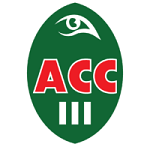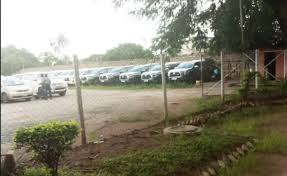I wish to welcome you all to this Media Briefing that has been called to update the public on operations of the Commission in 2020, with highlights of activities spanning over a three-year period, that is, 2018 to 2020. This brief will highlight the activities of the Anti-Corruption Commission during this period with regard to public sensitization, corruption prevention as well as Investigation and prosecution of corruption cases.
The period 2018 to 2020 has seen Zambia recording a decline in performance on Transparency International’s Corruption Perception Index (CPI). This means that the corruption perception levels have increased over the years and this is cause for concern. The Commission recognizes the huge responsibility that rests upon it to implement strategies and interventions to arrest the spread of corruption in Zambia. However, the Commission cannot do this alone as the fight against corruption demands everyone’s participation. it is every citizen’s responsibility to reject and demonize corruption. Hence the National Anti-Corruption slogan “A Corruption Free Zambia, Begins with Me.”
In this regard the Commission will continue to work with various partners to implement programmes and activities that will address the corruption situation and curb public resource mismanagement. We all need to play our part in curbing the corruption scourge, by rejecting, resisting and reporting all suspected cases of corruption to the ACC. The Commission will endeavor to do its part by impartially pursuing all suspected cases of corruption to their logical conclusion.
In order to achieve this, the Commission needs the support of all stakeholders and citizens. The fight against corruption demands a collective approach and ownership at individual, institutional, and national levels.
Commission Activities – 2018 to 2020
Ladies and Gentlemen
Allow me to give you an overview of the Commission’s activities in the last three years.
Corruption Prevention
In line with the Commission’s Strategic Plan 2017 to 2022, the Commission continued to implement programmes aimed at preventing the occurrence of corruption at various levels of interaction between service seekers and providers. The Integrity Programme continued to be rolled out to various institutions with 10 new integrity committees being formed by different institutions in 2018, 20 in 2019, and 26 ICs were formed in 2020. By end of 2020, a total of 116 institutions had functioning ICs. These ICs are responsible for streamlining corruption preventive mechanisms within their respective institutions. The Commission has continued providing training to Integrity Committee members from different public and private institutions on how to design and implement anti-corruption programs in their respective institutions.
The importance of Integrity Committees in public and private institutions cannot be overemphasized. The work of ICs within institutions continues to contribute greatly to the strengthening of processes and procedures in order to improve service delivery. ICs are responsible for streamlining anti-corruption interventions within their respective institutions in order to strengthen processes and procedures for improved service delivery.
Examples of how ICs are working to improve service delivery within their institutions is through the development and implementation of service charters, codes of ethics, and customer service centers in their respective institutions. Development of policies such as the whistle –blower policy, gifts and benefits policy, fraud policy and conflict of interest policy which guide the institution on various professional and ethical matters is also helping ICs to improve professionalism, service delivery and sealing of loopholes for corruption.
The Commission also conducted system studies in different institutions as a response to complaints made regarding operations at these institutions. Some of these included studies involving Chisamba Town Council and Department of National Parks and Wildlife, in 2020, while in 2019 studies were done involving the Bursaries Committee regarding the manner in which affairs of the committee were being administered, as revealed in the Auditor General’s reports. Studies were also conducted involving the teacher recruitment exercise by the Ministry of Education, student enrolment by colleges of education, among others, in 2018. Recommendations were made on how the issues would best be addressed to seal loopholes for corruption.
Other Corruption Prevention exercises conducted included, Managerial Accountability Workshops and focus group discussions to identify corruption hotspot areas within institutions and communities. These provided information necessary in cultivating remedial interventions.
Community Education
The Commission also implemented various public outreach programs through its public education function aimed at equipping as many members of the public as possible with information on corruption to enable them to participate in the fight against corruption. These corruption awareness programs included lectures, media programmes, shows and exhibitions, training workshops and public rallies. However, some sensitization activities could not be held because of the Covid-19 pandemic, which made public gatherings almost impossible. In 2020, 270, 000 people were reached through these programs, while over 300, 000 where reached in 2019 and over 340, 000 in 2018. The Commission also continued to support anti-corruption clubs in schools across the country, distributed anti-corruption supplementary books in schools and other Information Education Communication materials (IECs).
Investigations and prosecutions
During the year 2020, the Commission received a total of 539 reports of suspected corruption. Out of these reports received, a total of 286 were non- corruption related. Therefore, advice was subsequently provided to all those that brought these reports on how best to pursue the matters complained of as they were outside the Commission’s mandate.
Further, of the 539 cases received 253 reports contained elements of corruption and 182 reports were authorized for investigations while 3 were recommended for Corruption Prevention interventions. The 68 reports not authorized for investigations did not have sufficient details of any corruption offence to warrant investigations to be conducted. Therefore, they were subsequently referred to relevant institutions for appropriate remedial action. The complainants in these matters were also advised accordingly.
During the year 2020, the Commission continued investigations into the authorized reports for investigations including those carried forward from the previous year with prioritization of high-profile cases. The Commission concluded a total of 74 investigation cases in 2020. In the same period the Commission made twenty-two (22) arrests. At the close of the year, there were a total of 913 cases under investigations carried forward to this year.
Meanwhile, in 2019, the Commission had received 745 cases of suspected corruption and investigated 202 corruption cases. 38 arrests were recorded that year. In 2018 the Commission received 980 cases of suspected corruption, and investigated 235. 19 arrests were made that year.
At the close of 2020, the Commission under the Legal and Prosecutions Department had a total number of 78 active cases in Court comprising of 71 criminal cases and 7 civil cases. The commission concluded 20 cases in 2020 with 12 resulting in convictions, and 8 in acquittals. This represents a conviction rate of 60 percent. 6 cases are pending appeal and 7 cases pending delivery of judgement.
Meanwhile, in 2019, there were 88 active prosecution cases, and 27 cases were concluded. 18 convictions were recorded, with 9 acquittals representing a conviction rate of 66 percent. In 2018, the Commission had a total of 110 active cases under prosecution by close of the year, with 37 being concluded resulting in 25 convictions and 12 acquittals. This represented a conviction rate of 67.5 percent. Over the last three years, the Commission has maintained a conviction rate of over 60 percent which is an indication of progress in the fight against corruption. The Commission will endeavor to raise the conviction rate even higher in 2021 and beyond.
Status on some High Public Interest Cases
- Allegations of Corruption involving Ministry of Health regarding alleged irregularities in the awarding of a tender to Honeybee Pharmaceuticals. Investigations in this matter are ongoing and have reached an advanced stage. So far, the Commission the has warned and cautioned the former Permanent Secretary for Administration Ms. Akakulubelwa Mulalelo. The Commission will soon submit the docket to the National Prosecutions Authority for further action.2
- Alleged corruption involving the Ministry of Health regarding mismanagement of Covid-19 donations. The Commission has been investigating the matter, and investigations have reached an advanced stage.
- Alleged corruption in the recruitment, promotion and transfer of Teachers involving the Teaching Service Commission. The Commission instituted investigations into the above allegations and the investigations are on-going.
- Investigations into suspected corruption in the manner some named Councilors from Lusaka and Kitwe City Councils were involved in illegal land allocation. Investigations into the above matter are on-going.
- Investigations into alleged corruption in the manner Ministry of Health procured ambulances at a cost of US$288,000 per ambulance. Investigations into this matter have been concluded and the case will be submitted to the Legal and Prosecutions Department.
- Investigations involving 51 houses. The Commission has concluded investigations against named individuals for being in possession of properties reasonably suspected to be proceeds of crime. The properties in question involve 51 houses located in Lusaka’s Chalala area. The case has since been submitted to the Director of Public Prosecutions (DPP) for possible prosecution. As you may be aware, the named houses were seized and forfeited to the State. However, some named individuals have contested the seizure and forfeiture of the named properties. The Commission will aggressively defend its position for the 51 houses to remain in the hands of the State.
- Investigations into suspected irregularities in the tendering process in the manner the contract for construction of Beit Stadium in Chipata was awarded. Investigations have been concluded and what has been established is that the stadium was not sold or leased to any individual or entity. The evidence gathered is not sufficient for the Commission to prosecute the matter. The Commission has since written to Chipata Municipal Council that if need be, the tender to lease the stadium be re-advertised to ensure procurement procedures are strictly followed.8.
- Alleged corrupt offering and giving of K1 million cash gratification to a Zambia Revenue Authority Officer by a Mr. Samboko of Opermin Zambia Limited as an inducement to overlook tax liabilities amounting to K69 million by Opermin Zambia Limited. The investigations have been concluded and the case has been referred to the Legal and Prosecutions Department for legal opinion.
- Investigations involving the Privatisation of State-owned assets. The Commission has been investigating matters relating to the privatization process and has since recorded a Statement from United Party for National Development leader Hakainde Hichilema.
Cases from the Auditor-General’s Reports
In 2018, the Commission picked 10 cases from the Auditor-General’s report. 2 of these were concluded and the allegations were not proven, while investigations are ongoing in the other 8 cases. In 2019, 7 cases were picked for investigations, which are still ongoing and are at various stages of investigation. In 2020 the Commission commenced investigations into 5 cases from the Auditor-General’s report. These are ongoing.
Arising from these investigations, a number of assets have been seized and forfeited to the state. Between 2018 and 2020, a total of K 63, 742, 199 has been recovered from cases arising from the Auditor-General’s reports. Also, remedial action has been taken in some cases, including the suspension and firing of erring officials.
Conclusion
I wish to conclude by reiterating the Commission’s call to all citizens, to come on board and be part of the solution to the problem of corruption. As much as the Commission relies on human resource, legal provisions, financial resources among others to effectively mount a formidable anti-corruption campaign, it also relies on support from various stakeholders that include the general citizenry especially in unearthing suspected corruption. The reports from concerned members of the public regarding suspected corruption forms a huge resource for initiating corruption investigations. I therefore urge all citizens to be vigilant and report cases of corruption in order for us to succeed as a nation, in combatting corruption. Let us stand United against Corruption.
I thank you.
Dorothy M. Mwanza
Assistant Public Relations Manager


